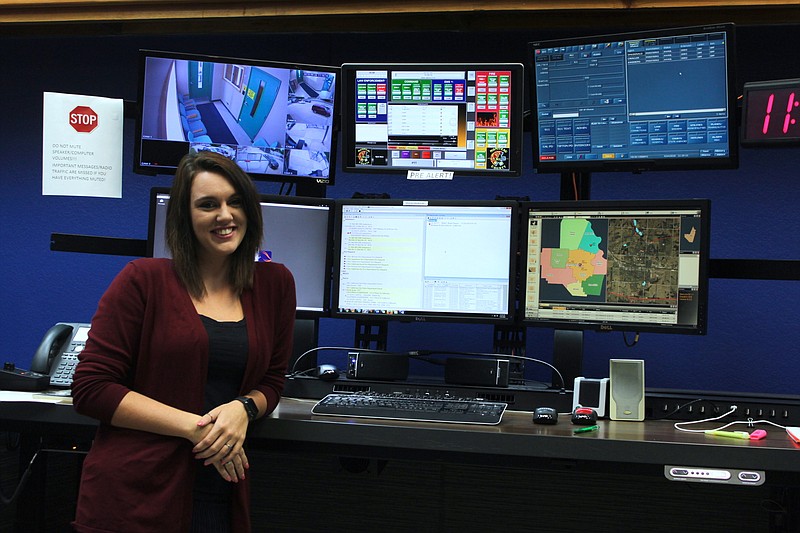The control room of the Moniteau County 911 Dispatch Center looks like something straight out of a Central Intelligence Agency movie.
A majority of the room is filled with an impressive amount of computers and other forms of technology, all to serve an important purpose. That is to serve as a bridge of communication between Moniteau County and law enforcement agencies and to keep everyone safe.
Shelby Barnett has worked with that bridge for five years as a dispatcher.
"We're the voice someone talks to when they're being burglarized or in a bad car accident," Barnett said. "Sometimes people are scared to death."
As she and her team are "the part that's heard and not seen," dispatchers work to send not only police officers, but also the fire department, emergency medical services and first responders to scenes where those agencies may be needed.
This requires a lot from dispatchers. The ability to multi-task, Barnett said, is one of the most important.
An emergency is not the only call the office may answer. They can provide maps for over-the-road trucking and receiving reports of brush fires. They also set off tornado sirens and alert storm watchers to weather that may prove unruly.
For these calls, the public can call the business line at 573-796-8416.
Barnett said her line of work has a fairly high turnover rate.
"It takes a certain personality to work here," she said. "Dispatchers often have crazy schedules, and the day can be intense. But all in all, we're the calm voice in the dark. We're here to help people."
In times of stress, sometimes her co-workers are able to help one another out, but not all the time. Supervisor Kevin Wieberg said "one dispatcher can be speaking with a caller who needs an ambulance, getting information that the person may need. At the same time, the dispatcher right next to them can be sending an ambulance to the scene."
In a field where teamwork is vitally important, Barnett said training is done regularly for each dispatcher.
"Here we do monthly training and it's really the highest level," she said. "Kevin (Wieberg) has been great at updating our equipment and with in-house training."
The most difficult part of the job, Barnett said, is not knowing what happens to callers after the dispatchers have done their job.
For those who wish to join the ranks, Barnett said the center requires a few things of its applicants - to be at least 18 years old and have a high school diploma. Having a college degree and prior experience are also helpful. The interview process for dispatchers is a little different than other places of work, however.
"Applicants will play listening games and there's a test they'll take to measure their active listening skills and multi-tasking capabilities," Barnett said. "It's all to see how well you can listen and do something else at the same time."
Those who make the cut will be working alongside training officers, like Barnett, two dispatch supervisors and Terminal Agency Coordinator (TAC) officers. TAC officers, Barnett said, tackle the "paperwork side of things."
No matter how difficult the day may be, Barnett said she feels right at home when at work.
"I've been here for five years and there's no other place I'd rather work," she said. "I grew up in this place."
"This is the central communications base that informs what's going on. It's good to know that everyday you help someone. It's the little stuff that helps."

